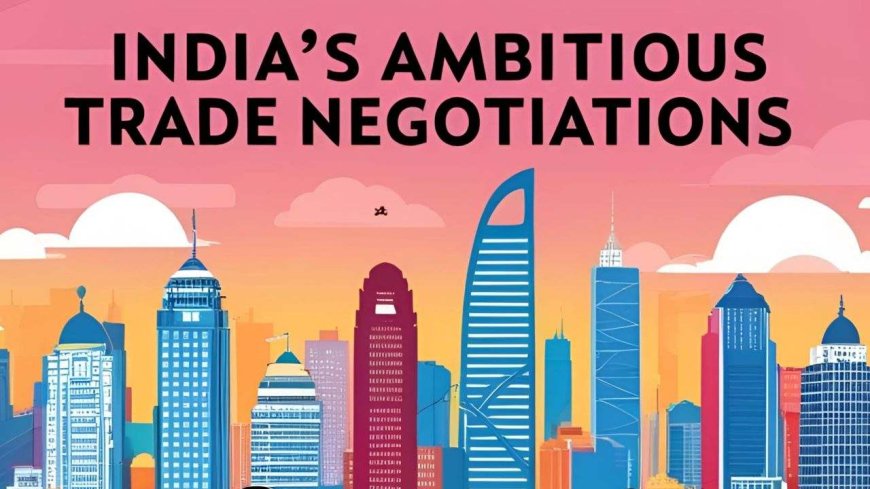India’s Ambitious Trade Negotiations: A Global Push for Economic Growth
These discussions hold immense importance, as India and the US have had a history of tariff-related disagreements. India is keen to secure better access for its products in the US market, particularly in textiles, pharmaceuticals, and IT services.

India is making significant strides in its international trade negotiations as the government actively seeks to strengthen global trade relationships. Commerce and Industry Minister Piyush Goyal is currently in the United States for bilateral trade discussions, aiming to leverage India's growing economic influence and address trade imbalances caused by previous tariff escalations.
Additionally, the talks are expected to cover key areas such as reducing tariffs on Indian goods like steel and aluminum, easing visa restrictions for Indian IT professionals, and strengthening India's role in semiconductor manufacturing. Meanwhile, the US is looking for greater access to India’s agriculture, medical device, and e-commerce markets, which have traditionally been tightly regulated to protect domestic industries.
Simultaneously, India is negotiating a free trade agreement (FTA) with the European Union, which, if finalized, could become the largest trade deal in the world. These negotiations, which resumed after nearly a decade-long hiatus, aim to lower tariffs on Indian textiles, leather, and agricultural products to boost exports to Europe.
Additionally, the discussions focus on easing regulations for European investments in India, particularly in green energy, digital technology, and pharmaceuticals. However, several challenges remain, including concerns over labor laws, environmental regulations, and data protection standards that the EU wants India to comply with before finalizing the deal.
In addition to its talks with the US and the EU, India has also restarted FTA negotiations with the United Kingdom. These discussions are particularly significant, as the UK, post-Brexit, is looking for strong trade partnerships to strengthen its economy.
The negotiations focus on reducing tariffs on Indian whisky imports, a long-standing demand from British distillers, and facilitating student and work visas for Indian professionals. Furthermore, the UK is looking to boost British investments in India's fintech, healthcare, and infrastructure sectors. However, despite eagerness from both sides, differences in tariff structures, intellectual property rights, and services trade regulations continue to be points of contention.
If successfully executed, these trade agreements could have a transformative impact on India’s economy. Increased exports would make Indian products more competitive in global markets, while foreign investments in key sectors like manufacturing, technology, and renewable energy could drive economic growth. Additionally, lower tariffs on imported goods would offer Indian consumers a wider range of products at competitive prices.
These agreements could also boost employment opportunities, particularly in industries like IT, pharmaceuticals, and automobile manufacturing. However, they also pose challenges, especially for Indian manufacturing, as increased foreign competition may put pressure on domestic producers to enhance efficiency and product quality.As India continues to engage in these high-stakes negotiations, the outcomes of these deals will play a crucial role in shaping the country's economic trajectory and its position in global trade.

